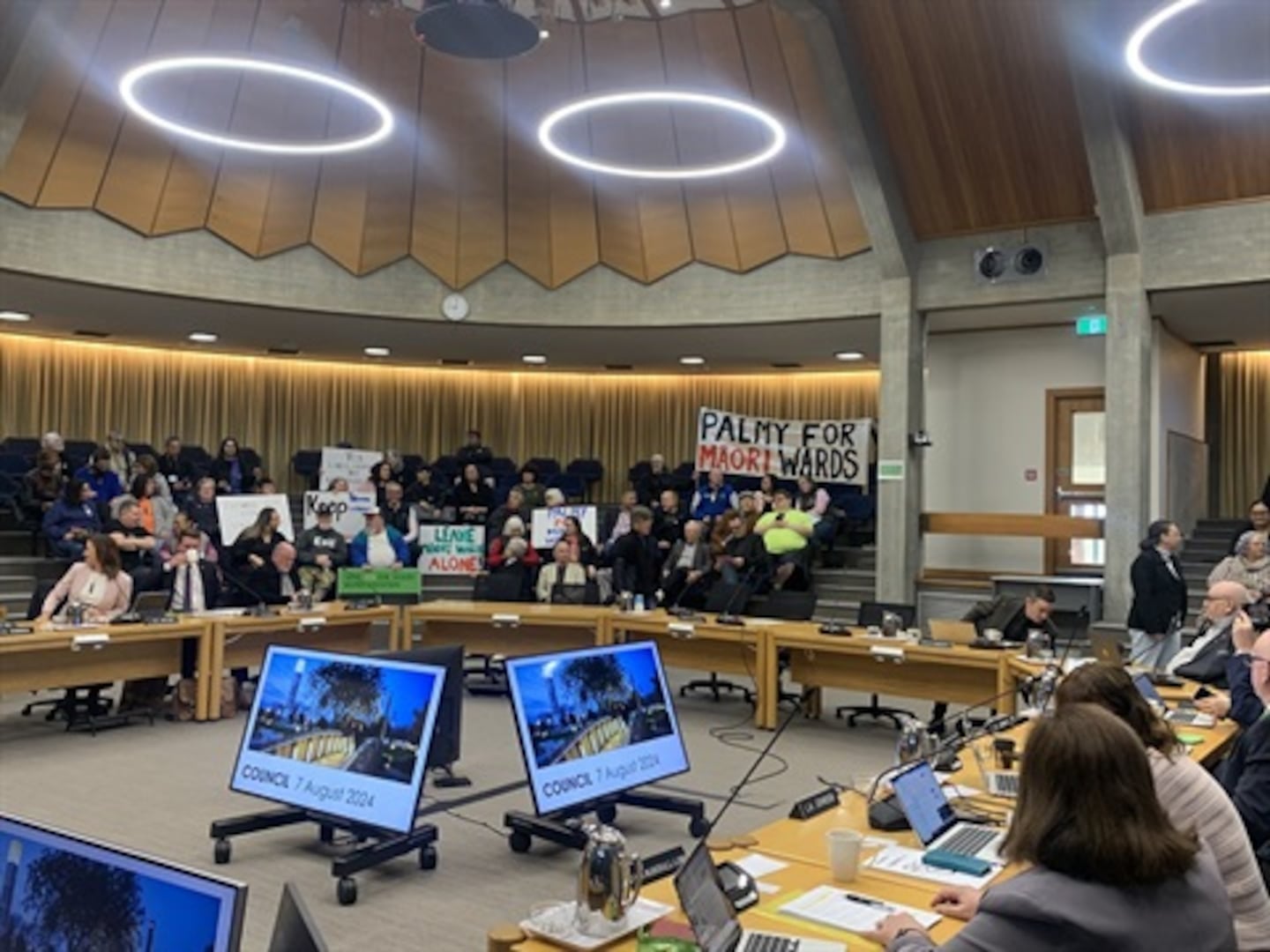Palmerston North City Council voted to retain Te Pūao Māori ward and resolved to explore the implications of refusing to hold a binding referendum in October 2025.
The decision came after the coalition government pushed legislation requiring councils to decide whether to disestablish or retain Māori wards by September 6.
If councils choose to retain, they must hold a binding referendum in the 2025 local elections at their own cost.
The Palmerston North City Council showed overwhelming support to keep the Māori wards, which provide two of 16 seats to be elected by those on the Māori electoral roll.
There were a number of verbal submissions from community members who believed it made the city a “better place” and were grateful the council supported the representative structure.
Concerns about the ward’s removal revolved around the loss of democratic representation as well as mana, with the council urged not to revert to the past.
“Palmerston North has nothing to fear and carries on a fine tradition of council working together with Māori for over 150 years,” mayor Grant Smith said.
He said Te Pūao Māori ward councillor and deputy mayor Debi Marshall-Lobb and councillor Roly Fitzgerald had enriched the council and community through their advice and service.
“Our relationship with Rangitāne is exemplary in the country. We’re one of three out of 78 councils that have tangata whenua on our council crest, and one of the few cities to have a statue of an indigenous leader – Te Peeti Te Awe Awe, which was erected in 1907 in our city centre. We have a great partnership with Rangitāne o Manawatū, and we’re so proud of this.”
Councillors also raised concerns about the government process with short timeframes which didn’t allow for public consultation, plus concerns for community wellbeing and misinformation.
Kaipara mana whenua also had these concerns yesterday as the Kaipara District Council decided to dump its Māori ward. Councillor Pera Paniora called out misinformation and said the decision should be postponed until consultation with local iwi and hapū, as per council obligations of the Local Government Act.
In contrast, Palmerston North City Council emphasised an “unwavering commitment” to ensuring Māori voices were heard.
At the time the coalition government proposed the legislation, the council formally opposed it, making a submission to Parliament’s justice committee.
An additional amendment put forward by councillor Karen Naylor and seconded by councillor Rachel Bowen to seek further information on the implications of not proceeding with a binding referendum which was also supported.
A report on the potential implications will be presented at an upcoming council meeting.




